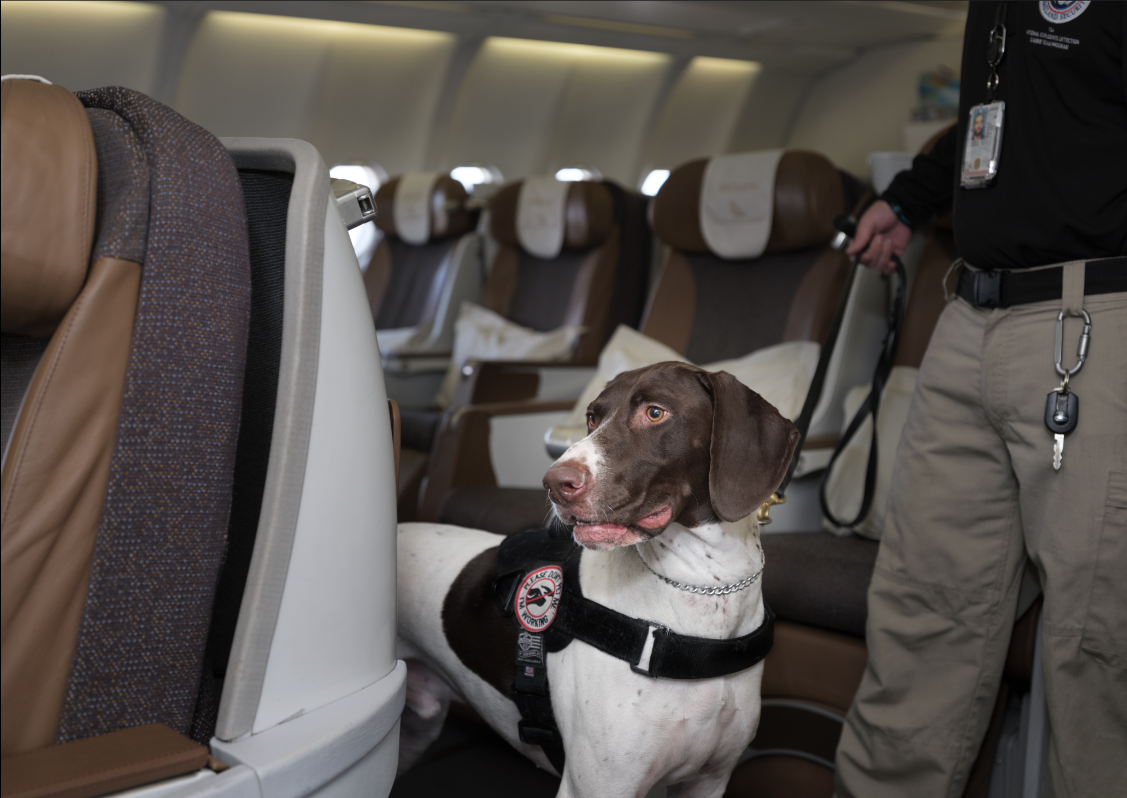 TSA passenger screening canine Hulk, a German Shorthaired Pointer at work at Washington Dulles International Airport. (Photo by Liz Stavrinides)
TSA passenger screening canine Hulk, a German Shorthaired Pointer at work at Washington Dulles International Airport. (Photo by Liz Stavrinides)
WASHINGTON, D.C. — Five Transportation Security Administration (TSA) explosive detection canine teams who work out of Washington Dulles International Airport are featured in a new book that shares stories of dozens of canine heroes.
The 267-page book, “Extraordinary Dogs,” focuses on more than 50 working dogs and their handlers across the United States with photos of the dogs and their handlers hard at work. The TSA passenger screening canines featured in the book are trained to sniff travelers as they pass through transportation environments for scents of any trace of explosives that may be detected in air currents. The dogs include Finley, a Fox Red Labrador Retriever; Taffey, a Golden Retriever; Hulk and Orel, both German Shorthaired Pointers; and Bo, a black Labrador Retriever.
TSA has more than 1,000 explosives detection canines working at the largest airports in the country whose primary mission is passenger screening at the nation’s airport checkpoints. They serve as an important--and one of the most popular--of the many layers of security that TSA has in place to thwart adversaries who want to cause harm, in an effort to help ensure that travelers get to their destinations safely.

The TSA dogs and handlers go through an intensive 16-week training regime at the TSA National Canine Training Center located on the grounds of Lackland Air Force Base in San Antonio, Texas. The book recounts stories the canine handlers share in their own words about their training, the security screening of passengers, and how they work together as a team to keep travelers out of harm’s way.
The canine program exemplifies TSA’s commitment to focusing resources on the greatest threat to transportation systems and exists to deter and detect the introduction of explosive devices.The explosives detection canine teams have been integrated into TSA’s overall layered security methodology and are a proven highly mobile and extremely effective and efficient explosives detection tool.
The book was authored by John Schlimm and photographed by Liz Stavrinides.
